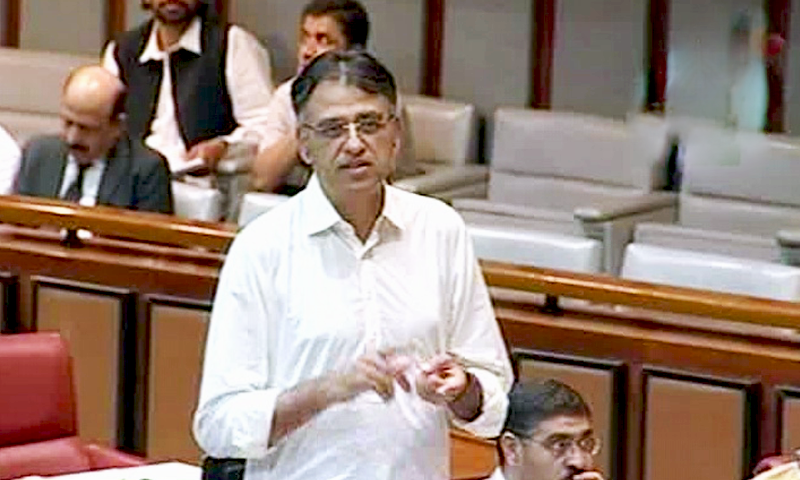Asad Umar, the newly appointed finance minister of Pakistan has said that addressing the concerns of the Financial Action Task Force (FATF), the global terror financing watchdog is in best interest of Pakistan. The country was demoted to ‘grey list’ in June 2018 and pressures of getting ‘blacklisted’ loom large over Pakistan. “We have even been on the grey list twice. It is not like this would suddenly result in trade or banking sanctions for us. But it clearly also is a negative signal, especially for a country that has such a severe current account deficit. So you obviously want to avoid this,” said Umar.
Pakistan fears that if the country is blacklisted it will be very unlikely to get a bailout package from the International Monetary Fund. Pakistan is seeking a 12 billion dollar loan from the global lender as it has foreign exchange to finance imports of only two months. If a country is blacklisted, global lenders like IMF, ADB are very unlikely to give loans and the rating agencies also downgrade the sovereign ratings.
The global terror financing watchdog has reported 8,707 suspicious transactions in Pakistan in 2018. The FATF presented a 10 point action plan to achieve 27 targets against terror financing in the country. Jamat-ud-Dawa (JuD) and Falah-e-Insanyat Foundation (FIF) were banned by Pakistan when the meeting of FATF was going on and the organization was considering ‘blacklisting’ the country. The Financial Monitoring Unit issued 8,707 suspicious transaction reports (STRs) against 5,548 STRs in 2017, which shows a 57 percentage increase. 1,136 STRs were issued in January and February alone.
The FATF prepares two lists the ‘black list’ and ‘grey list’. If a country is included in the blacklist then it has to face international sanctions. Iran and North Korea are countries put in the blacklist and Pakistan could be there if it does not take action against terror financing. The countries which are included in the blacklist are not allowed to issue government bonds through which the government of a country borrows from the international market. Although Pakistan is not included in the blacklist until now, being included in the grey list had already made its sovereign bonds less attractive to international investors.
Pakistan was placed on the FATF grey list from 2012 to 2015 as well. In the review meeting last year, FATF said that Pakistan had failed to comply with the anti-money laundering and terror funding guidelines and placed it in the ‘grey list’. After a country is added in the grey list, three reviews are conducted, followed by a round at which it will be decided whether the country is to be blacklisted. Pakistan’s first review was in October 2018 and the third will be in June 2019. The meeting on blacklisting will take place in October 2019. Interestingly, the current chair of FATF is the United States and the vice president is China, which did not oppose Pakistan being placed on the grey list.
